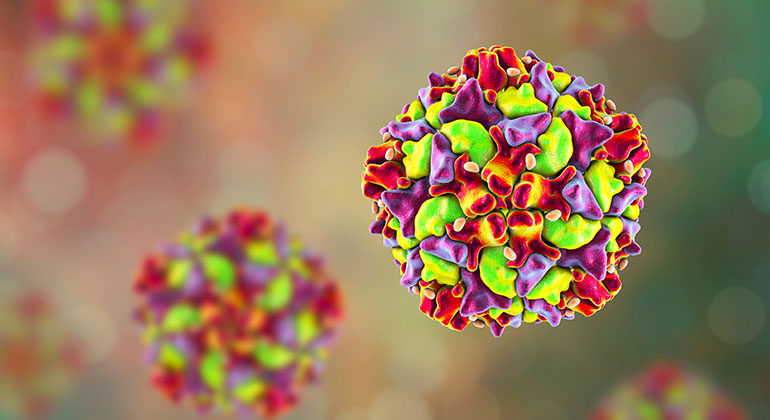Polio

The polio virus is highly infectious and life-threatening. While rare, polio has appeared in the New York metropolitan region recently. The New York State Department of Health has reported a case of paralytic polio in a young adult and the poliovirus has been found in the New York City sewer system. The information below is based on current (as of August 15, 2022) recommendations from the Centers for Disease Control and Prevention (CDC) and the New York State Department of Health.
Most adults ages 18 and over residing in the United States are presumed to be immune to poliovirus from previous routine childhood immunization.
Young children may be at risk. Some families have not been able to perform the standard childhood immunizations due to the COVID-19 pandemic. This leaves many children at risk of vaccine-preventable diseases, such as polio. If your child is behind on vaccines for polio, varicella, and other conditions, please schedule a doctor’s appointment at your earliest convenience.
Symptoms and Spreading
Polio enters your body through your mouth or nose. It grows in your throat and intestines. The most common symptoms are:
- Chills
- Fatigue
- Headache
- Muscle and back aches
- Swollen lymph nodes
Sometimes, the polio virus gets into the brain and spinal cord and causes paralysis. It can leave you unable to control your arms, legs, or the muscles that control breathing.
Polio spreads by contact with:
- A person who has the virus
- Infected mucus or phlegm from the nose or mouth
- Infected feces
Diagnosis
We diagnose polio by:
- Taking samples of throat washings, stools, or spinal fluid
- Testing for antibodies to the polio virus
Treatment
There is no specific treatment for polio. If someone has polio, we try to control the symptoms using:
- Antibiotics (for urinary tract infections)
- Moist heat, such as heating pads, to help with muscle pain and spasms
- Painkillers to reduce headaches, muscle pain, and spasms
- Physical therapy, braces and corrective shoes, and orthopedic surgery to help improve muscle strength and function
Current Vaccination Recommendations for Adults
- Adults who are fully vaccinated against polio do not need to receive any booster doses at this time, unless they fall into one of the risk categories in the next bullet.
- Previously vaccinated individuals who are at risk because of their community of residence or who have had close contact with a patient infected with poliovirus should receive a booster dose of inactivated polio vaccine (IPV). This recommendation also applies to laboratory or health care workers who handle specimens that might contain polioviruses.
- Unvaccinated adults should get three doses of IPV, starting as soon as possible: two doses separated by 1 to 2 months, and a third dose 6 to 12 months after the second dose.
- Adults who have had one or two doses of polio vaccine in the past should get the remaining one or two doses. It does not matter how long it has been since the earlier dose(s).
- Polio vaccine can be given during pregnancy and is recommended if the individual is at risk of exposure. Pregnant persons should discuss the risks and benefit of IPV with their health care provider.
Current Vaccination Recommendations for Children
- The schedule for polio vaccination for unvaccinated or under-vaccinated children through age 17 years is two doses of IPV separated by 4–8 weeks, and a third dose 6–12 months after the second dose. A fourth and last dose should be given between 4-6 years of age. The IPV or first dose of combination products containing IPV can be given as early as six weeks of age.
- Children who are in the middle of their vaccine series should complete the series as scheduled. They do not need to receive earlier or additional doses.
- Children who have had one or two doses of polio vaccine in the past should get the remaining one or two doses. It does not matter how long it has been since the earlier dose(s).
Pediatric vaccinations have not returned to pre-pandemic levels, leaving many children at risk of vaccine-preventable diseases. We urge you to immediately identify and schedule appointments for your children who may be behind on polio, varicella, and other routine immunizations.
If you wish to discuss your or your child’s vaccination status, please schedule an appointment with your/your child’s physician through MyMountSinai, Find a Doctor, or by calling the office directly. For assistance finding a new physician please call 1-800-MD-SINAI or search on our Find a Doctor platform.
More detailed information is available from the New York State Department of Health and the New York City Department of Health and Mental Hygiene.
